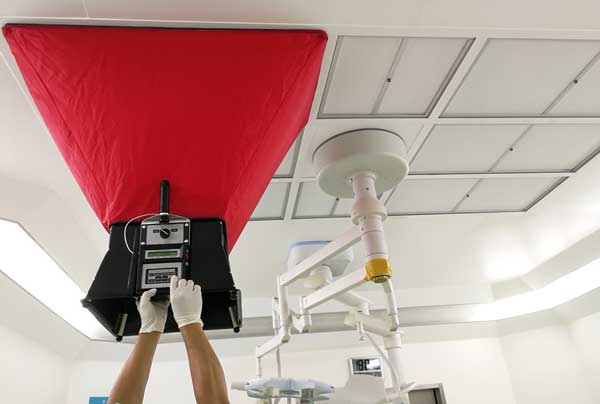Health & Safety
Safety Is Paramount To Everything Coral Does
Coral Canada Wide Ltd., believes the workplace must be a safe and healthy environment for everyone. From our workers and sub-contractors to our clients and passerby. Our Health and Safety program was designed with this goal in mind. We firmly believe it is the shared responsibility of all Coral employees.
Some of the ways we do this is by:
Responsibility & Awareness
All Coral employees are responsible for our Health and Safety program. We utilize Safe Job Procedures which meet and exceed OH&S requirements while our technicians are on site. Also, our technicians must complete a JSA (Job Safety Assessment) and an LMRA (Last Minute Risk Assessment) before work begins to ensure the site is safe and work can begin.
Working Together For Success
A commitment to safety by every employee every day on every job is required for Coral Canada Wide Ltd. to meet the level of safety excellence we strive for.
It is our policy to:
- Provide and verify training as required;
- Conduct site and task-specific hazard assessments;
- Use CSA approved personal protective equipment as needed;
- Properly maintain tools, equipment, and facilities;
- Conduct inspections to find and correct substandard acts or unsafe conditions;
- Implement a site safety plan that is tailored to the specific site requirements.
Demonstrating Leadership
We demonstrate leadership by being committed to providing a safe and healthy work environment for everyone who works with Coral Canada Wide Ltd. This also includes everyone who comes in access with our products.
Zero Tolerance
We are committed to a goal of zero accidents or incidents. We strongly believe that no work is so important that it can’t be completed in a safe manner.
Coronavirus Pandemic Protocols
During a pandemic, transmission of the pandemic virus can be anticipated in the workplace not only in the health care profession but from customers and coworkers in general work settings.
This requires Coral Operations and Service Managers, Field Supervisors and Safety Representatives to identify the hazard associated with pandemic virus hazards and to limit the hazard with the appropriate infection control measures. Coral Canada Wide Safe Work Practices are provided to assist operational management implement safety programs including training and processes consistent with hazard levels anticipated.
Operations and Service Managers, Field Supervisors and Safety Representatives will implement and enforce this Safe Work Practice.
Infection Control
- Infection control measures are to be implemented before a virus risk is identified. The most common route of season and pandemic virus is droplet transmission and indirect contact from person to person.
- Prompt identification of persons with pandemic virus symptoms and restriction from the work site are key actions in controlling the spread of pandemic virus.
Hand and Respiratory Hygiene
- Follow all local health recommendations.
- Wash your hands frequently with soap and water. If there is no soap available use alcohol-based hand sanitizer (at least 60% alcohol).
- Cover your mouth and nose with a tissue when you cough or sneeze and put your tissue in a wastebasket.
- If no tissue is handy, cough or sneeze into your upper sleeve, not your hands.
- Wash your hands after coughing or sneezing, using soap and water or an alcohol-based hand gel.
- Avoid touching your eyes, nose or mouth.
- Wear a surgical mask if you are in contact with other people.
- Thoroughly wash your hands before putting on and taking off the mask.
- When removing the mask, do not touch face, do not set the mask on any surface, put it in a disposable bag and do not set the bag on any surface. Dispose of the bag immediately and thoroughly wash hands after disposing of it.
- Never reuse a mask. It is considered to be contaminated after one use.
Social Distancing
- Avoid close contact with other people as much as possible. It is suggested to keep a minimum social distance of three feet of all persons.
- Clean and disinfect surfaces that are frequently touched.
- Stay home if you are feeling ill.
Workplace Sanitation and Environmental
- Viruses are able to survive on a surface for days; regular sanitation with cleaning supplies will decontaminate the work surfaces.
- Shared workspaces and equipment is to be sanitized between workers.
- Sanitize all community dishes with soap and hot water. Use a dishwasher if available.
Control Measures
- Engineering Controls
- Ventilation
- Physical Barriers
- Administrative Controls
- Hand Hygiene/ Respiratory Hygiene
- Social Interaction
- Workplace and Equipment Sanitation
- Restrictions of Infected Persons from Workplace
- Personal Protective Equipment
- Approved Respirator or Surgical Mask
- Gloves
- Eye Protection


